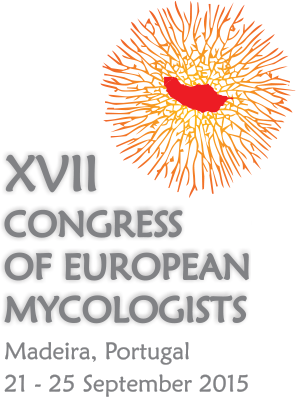"Working with fungi"
The XVII Congress of European Mycologists, organized under the auspices of the European Mycological Association (EMA), a meeting that happens every four years, was the latest in an unbroken series going back almost sixty years – longer than any other international Congress in mycology. It built on a distinguished record of promoting progress in mycology and understanding the diversity and biology of fungi. Earlier Congresses in this series have been in many different parts of Europe, but this was the first in Portugal, and the first on an Atlantic island beyond the main continental shelf, rich in endemics, of great scientific interest, and further west and south than any before.
Reflecting the inherent difficulties experienced in a time of crisis, this year only 142 participants attended this event. However, it was very encouraging having people coming from all over the world and with a great percentage of young scientists and students, all “working with fungi”, the motto of this Congress.
The Congress hosted participants from 32 countries – 21 European countries (Belgium, Bulgaria, Czech Republic, Estonia, Finland, France, Germany, Greece, Hungary, Italy, Latvia, Luxembourg, Poland, Portugal, Russia, Slovakia, Spain, Switzerland, The Netherlands, Ukraine and United Kingdom) and 11 from outside Europe (Brazil, Canada, Egypt, India, Israel, Japan, Korea, México, Nigeria, South Africa and Turkey). In all, 162 scientific papers were presented in a fruitful interchange of knowledge, in an amiable, friendly climate.
At the EMA General Assembly, which took place during the Congress, it was decided that the next Congress will be held in Poland.
On behalf of the president of the European Mycological Association and of the Organizing Committee I thank all participants for the enthusiastic adhesion to the proposed programme and their contributions to maintain the usual high scientific standards of these meetings.
João Baptista-Ferreira
Chairman of the XVII CEM

Avenida 5 de Outubro, 53-2 / 1050-048 Lisboa | Portugal
Project Manager: Sofia Gomes da Silva
P.: +351 21 315 51 35 F.: +351 21 355 80 02
XVIICEMsecretariat@mundiconvenius.pt
Scientific@xviicem.org
www.xviicem.org






